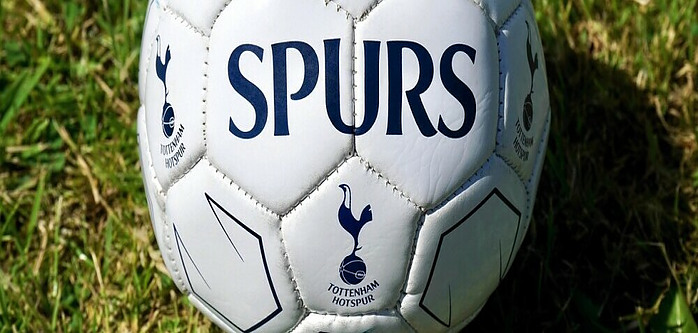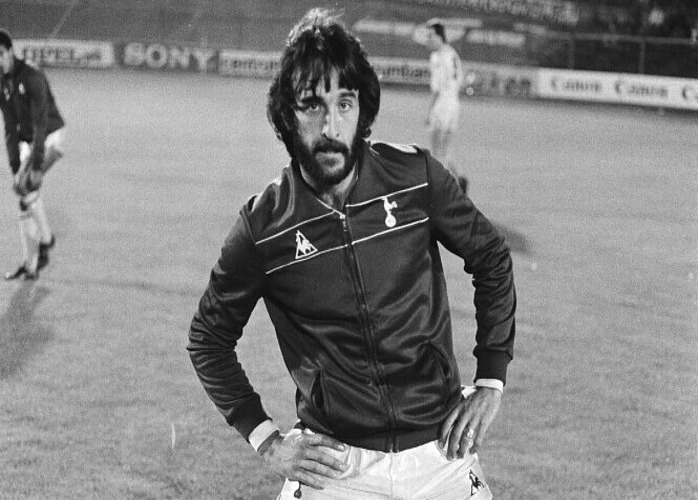This could just be about the FA Cup Final 1981: The Replay. And it is, sort of… but obviously, the story of 1981’s FA Cup needs to be told more fully than that. So, here it is…

As this was 1981, it is beholden of me to mention that Spurs had a rather good FA Cup record in years ending with a one. They had first won the competition in 1901 (beating Sheffield United, including William ‘Fatty’ Foulkes).
Incidentally, in so doing, they became the only non-League* winners of the competition. They missed out in 1911 but won it again in 1921 and then again in 1961 when they did the League and FA Cup double.
The 1980-81 season of the FA Cup marked the hundredth playing of the World’s Oldest Cup Competition™. It is a playing of the competition, which is embossed on the pages of football history, not just for its milestone year, but for the dramatic twists and unexpected turns which led to its unforgettable climax.
It’s easy to assume that Villa refers to the claret and blue Birmingham club when talking about English football, but this time, the spotlight shone on a different Villa. Of course, this one is none other than Tottenham Hotspur’s Ricky Villa, whose name has, quite rightly, become synonymous with the Cup’s fairytale finish.
The original game was quite the match in the first instance. The unfortunate Tommy Hutchinson scored at both ends – well, for both teams at the same end, once in each half – more of which later. So, that was it. A 1-1 draw, and the stage set for a replay which would have everything – hope, despair, and ultimately, glory.
In a story fit for the big screen, Ricky Villa experienced the depths of disappointment when he was taken off the pitch during the drawn match, only to rise to the occasion in the decisive match. His goals bookended a rollercoaster replay, cementing his place in FA Cup lore and ensuring that the hundredth playing of the competition would be celebrated with his name etched in gold.
Ricky Villa’s Triumph: From Disappointment to Glory
Talk about Lazarus! Ricky Villa’s experience in the saga that was the 1980-81 FA Cup final played exactly like a drama fit for the big screen. After being substituted after 68 minutes of the draw as Spurs chased the hitherto elusive equaliser, Villa was understandably put out.
In the replay, though, Villa more than made amends for his somewhat lacklustre performance. Straight from the off, he was involved, scoring the first goal after 8 minutes following his compatriot Ossie Ardiles’ mazy dribble in from the left wing.
Just a quick note here about the City equaliser from the right boot of twenty-year-old Steve MacKenzie. Talk about a great hit. Just three minutes after Villa’s opener and following a short game of header ping pong, the youngster volleyed the ball from the arc on the edge of the penalty box. Aleksic had no chance.
Five minutes after the restart, City went ahead when Dave Bennett playing for his hometown club, was mashed between Paul Miller and Chris Hughton inside the penalty area. Kevin Reeves smashed the penalty kick hard to Aleksic’s left.
Twenty minutes later the game swung, perhaps decisively towards the North Londoners. A ball clipped over the on-rushing City defence breached their attempt to catch Garth Crooks and Steve Archibald offside. In the ensuing confusion in the middle of the penalty area, it was Crooks who stabbed the ball home to make it 2-2.
The scene was set then, as the famously heavy Wembley pitch (what, was it watered with heavy water?!) began to take its toll on both teams, but City more so. Perhaps unsurprisingly, being just ten minutes away from winning the cup in the first game and only twenty minutes when Crooks notched.
Yet, it still needed a hero to step forward. Cue, Villa. With 14 minutes on the clock (and all twenty-two starting players on the pitch) Tony Galvin burst from defence on Spurs’ left touchline. In the dictionary under “lung-busting” it says, “see him.” Anyway, he ran a long way, very quickly, and after 76 minutes of the match, before slipping the ball inside the Villa.
Setting off towards City’s penalty area, Villa waltzed (surely tangoed?!) through the City defence, twisting their blood as he went before calmly slotting the ball into the net.

In that moment, Villa wasn’t just a player scoring a goal; he was the embodiment, the distillation of persistence, skill, and the sheer will to win. From the lows of trudging off on Saturday, to this Thursday night high, it demonstrates the unpredictability of football and the profound impact one individual can have on the beautiful game.
The crowd, those of us watching at home, John Motson, some ITV guy, and the history books all remember Ricky Villa’s dance through the City defence as the defining moment of the 1980-81 FA Cup.
Tommy Hutchinson: The Dual Faces of Fate
In the cast of the 1980-81 FA Cup, another figure stands out: Tommy Hutchinson. Unfortunately, the oldest man on the pitch, Manchester City’s winger displayed both ends of the emotional spectrum in the first game. Not so much a villain as Villa was a hero, his name is equally scribed in FA Cup lore.
The game’s narrative shifted distinctly on the arc of Hutchinson’s contributions. He first rose to prominence with a diving header that was nothing short of sublime, eluding the grasp of Milija Aleksic in goal for Spurs. This wasn’t just any goal; it was the opener in the FA Cup final and it sent the City supporters into rapturous celebration.
However, football can be as unforgiving as it is beautiful. With just 10 minutes remaining the ninety, and City beginning to dare to believe that the cup was theirs, fate twisted cruelly for them and for Hutchinson. A Glen Hoddle cross, destined for the mix, saw him deflect the ball, off his shoulder casting it past his own goalkeeper, the redoubtable Joe Corrigan, and into the net. This own goal settled the first tie, setting the stage for the subsequent replay.
This turn of events deeply affected the City side and served to galvanise Spurs. Ricky Villa had had a reprieve, but poor Tommy Hutchinson, first-half hero, now bore the inadvertent tag of villain. His experience a stark reminder that football’s fortunes are notoriously fickle; that it’s a game where tables can be turned in the blink of an eye.
The Journey to FA Cup Glory: Spurs’ Designated Path
In every FA Cup season, some stories almost transcend the final result as far as the overall competition goes, at least in their immediate aftermath. These are the moments that fans and players of those individually victorious teams will carry forward for years to come.
Evertonians remember their team’s 2-1 derby win in the fourth round, which came after a 2-0 victory over Arsenal in the third round. Two draws meant the need for a third game as Wrexham was victorious over the holders West Ham.
Then we were treated to a moment of underdog brilliance with Exeter City’s unexpected thrashing of Newcastle United at their version of St James Park. It was a reminder that surprise outcomes are always a possibility in this cherished competition; excitement and unpredictability are its stock-in-trade.
City may have had a relatively straightforward semi-final win against Ipswich – Paul Power scoring the only goal at Vila Park – but Spurs had to dig deep to see off Wolves. The two fought a 2-2 draw at Hillsborough before Spurs overpowered their Black Country opponents 3-0 at Highbury – Garth Crooks grabbing two and Ricky Villa the other.
You can kid yourself on that Spurs’ eventual victory was more than just a conquest, but it really wasn’t. Yes, it was full of character tests, individual brilliance, and yes, a slice of fortune. Ultimately, that’s the essence of the FA Cup’s charm – the mixture of skill, grit, and luck all coming together to create unforgettable football history.
To all the teams, the unsung heroes, and every player who stepped onto the pitch during that 1980-81 season, their stories contributed to the 109-year-old embroidery of the FA Cup. As fans reflect on it, it’s clear that while the trophy may have just one recipient, the journey there holds victories, defeats and lessons for all involved along the way.
*Technically, all winners of the FA Cup before 1888-89 were non-League because there was no League.
